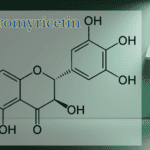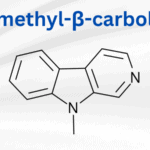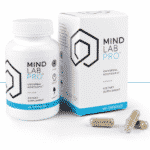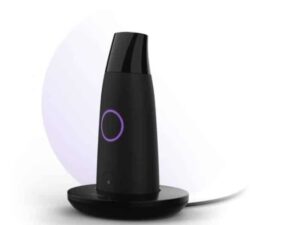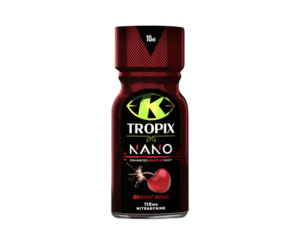Sarcosine: The NMDA Receptor Activator Nootropic
As the founder of Holisticnootropics.com, my mission is to provide you with evidence-based, nutrition-first cognitive enhancement strategies that focus on the intricate interplay between mind and body. In this article, we’ll dive deep into the world of sarcosine, an amino acid derivative with promising potential as a nootropic. We’ll explore its mechanisms of action, potential benefits, dosage recommendations, and safety considerations, all while maintaining a holistic perspective on mental health and cognitive performance.
Biohack Your Brainpower
What is Sarcosine?
Sarcosine, also known as N-methylglycine, is a naturally occurring amino acid derivative produced in the body by turning dietary choline into glycine or breaking down methionine. While it has gained attention as a potential biomarker for prostate cancer, our focus today will be on its nootropic properties and potential cognitive benefits.
How Sarcosine Works in the Brain
Sarcosine exerts its effects in the brain through two primary mechanisms:
- Activation of NMDA receptors: Sarcosine acts similarly to glycine, an amino acid that works alongside glutamate to activate NMDA receptors. By increasing glycine levels, sarcosine enhances NMDA signaling, which is crucial for learning, memory, and synaptic plasticity.
- Blocking of the GlyT1 glycine transporter: Sarcosine inhibits the reuptake of glycine by blocking the GlyT1 transporter, leading to increased synaptic glycine levels and further potentiating NMDA receptor function.
Interestingly, sarcosine appears to have advantages over glycine itself. It is better absorbed and crosses the blood-brain barrier more readily, potentially enhancing NMDA receptor function through multiple mechanisms.
Potential Nootropic Benefits of Sarcosine
Research suggests that sarcosine may offer several nootropic benefits, particularly in the context of mental health disorders:
Depression
A human study found that 1g/day of sarcosine was superior to the antidepressant citalopram in treating depression[1]. Rat studies also support its antidepressant effects. Learn More: Best Nootropics for Depression
Schizophrenia
Multiple human studies have shown that 1-2g/day of sarcosine as an adjunct therapy improves positive, negative, and cognitive symptoms in schizophrenia[2][3][4][5][6]. It is generally well-tolerated with minimal side effects.
OCD and Anxiety
One human study found that up to 3g/day of sarcosine reduced OCD symptoms, especially in treatment-naive patients[7]. Sarcosine also reduced anxiety more effectively than citalopram in a depression study[1], and rat studies suggest anti-anxiety effects comparable to benzodiazepines[9].
Memory and Neuroprotection
While human studies are limited, animal research suggests sarcosine may improve memory when combined with benzoate[10], protect the brain from ischemic stroke[11], and block the neurotoxicity of NMDA antagonists like ketamine[12].
Sarcosine Dosage
While optimal therapeutic dosages have not been definitively established, studies have used the following dosage ranges:
- Depression: 500mg-1.5g per day
- Schizophrenia: 2g per day
A common dosage range is 1-2g per day, but it’s essential to start low and consult a healthcare professional before use, as individual needs may vary.
Sarcosine Side Effects and Warnings
Sarcosine is generally well-tolerated, with minimal side effects reported in studies. However, there are a few important considerations:
- Rare reports of irritability, insomnia, and hypomanic symptoms
- Potential to exacerbate pre-existing prostate cancer, as high levels are associated with tumor aggressiveness[13]
- May interact with the antipsychotic clozapine, reducing its effectiveness[14]
- Insufficient data on long-term safety
Men, especially those at risk for prostate cancer, should consult their doctor before using sarcosine.
Where to Buy Sarcosine
Due to its niche status, there are a limited number of reputable brands offering sarcosine supplements. Nootropics Depot is one trusted source, providing high-quality sarcosine in the form of 1g chewable tablets. Their products are third-party tested for purity and potency, and they offer free international shipping on orders over $200.
Other specialty vendors may offer sarcosine in bulk powder or capsule form, but always exercise caution and do your due diligence when purchasing from lesser-known sources.
Sarcosine Discussions on Reddit
The nootropics community on Reddit has been actively discussing sarcosine, sharing personal experiences, and delving into the latest research. Let’s explore some notable insights from these discussions.
Promising Results for Depression and Anhedonia
Sarcosine allows me to just get stuff done, and prioritise my life, even in the smallest of ways that would have, only a week ago, seemed like giant leaps.
u/siwel7 in discussion ‘Sarcosine has completely changed my outlook on life; as of right now, I no longer suffer from anhedonia’
Many users report significant improvements in depression, anhedonia, motivation, and mood when using sarcosine. Effects are often noticeable within days but may diminish over time for some individuals.
Potential for Schizophrenia Treatment
I cant say enough positive e about sarcosine. Ive been able to maintain the same job for over a year without taking an assload of pharmaceuticals.
u/tink053184 in discussion ‘Sarcosine has completely changed my outlook on life; as of right now, I no longer suffer from anhedonia’
Sarcosine appears to be particularly helpful for reducing negative symptoms in schizophrenia, often allowing patients to reduce their medication burden. Most benefits are seen when sarcosine is combined with N-acetylcysteine (NAC).
Sleep Disturbances and Other Side Effects
It made me very irritable and overstimulated as well, not a fan.
u/Friedrich_Ux in discussion ‘Sarcosine retrospective: 48 hours of productive bliss followed by neurochemical hell’
While generally well-tolerated, some users experience side effects like insomnia, irritability, overstimulation, or worsening of OCD symptoms. Caution is advised in those sensitive to NMDA agonists, and sarcosine may interact poorly with ketamine.
Frequently Asked Questions
Does sarcosine cause weight gain?
There are no reports of weight gain associated with sarcosine in studies or anecdotal reports.
How quickly does sarcosine work?
Many users notice effects within hours to days, but full benefits may take weeks of consistent use to manifest.
Can I take sarcosine long-term?
Due to a lack of long-term safety data, the long-term effects of sarcosine are unknown. Cycling 5 days on and 2 days off is a common approach to minimize potential risks.
What’s the best time of day to take sarcosine?
Because of its energizing effects, it’s best to take sarcosine in the morning or early afternoon. Avoid taking it in the evening to prevent sleep disturbances.
Key Takeaways
Sarcosine is a promising nootropic with potential benefits for depression, schizophrenia, OCD, and anxiety. By activating NMDA receptors and increasing glycine levels, it may enhance cognitive function and alleviate symptoms of various mental health disorders.
However, it’s crucial to approach sarcosine with caution and always consult a healthcare professional before use. While generally well-tolerated, sarcosine may cause side effects in some individuals and interact with certain medications.
If you’re considering adding sarcosine to your nootropic regimen, I encourage you to do your own thorough research, weigh the potential risks and benefits, and make an informed decision based on your unique needs and circumstances.
For more in-depth information on sarcosine and other nootropics, be sure to explore our


